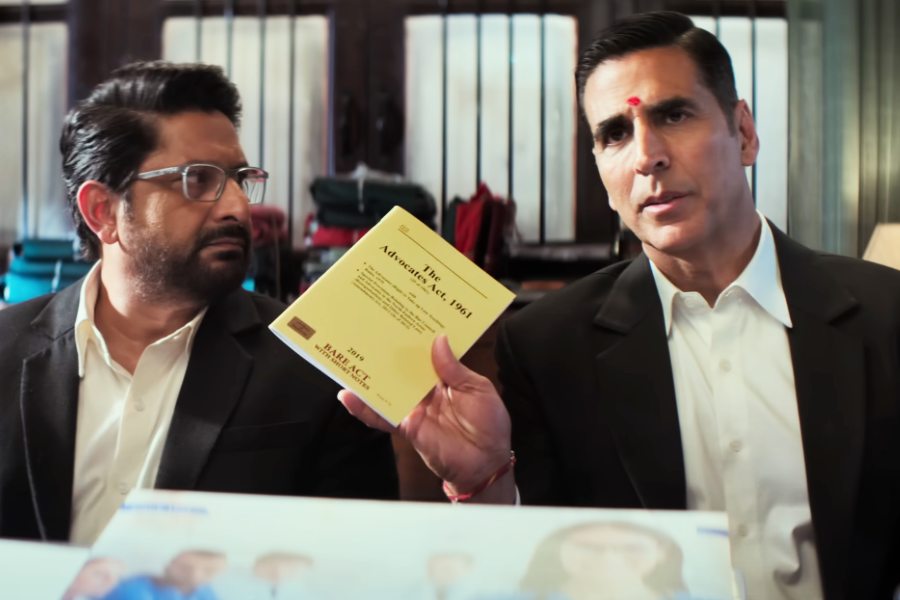Subhash Kapoor’s Jolly LLB franchise has always found humour in the cracks of the legal system. The third film takes that idea forward, reminding us that even the high and mighty have to bow down to the legal system. But despite the noble intentions, Jolly LLB 3 is pulled down by its own weight.
This time, there are two Jollys for the price of one. Arshad Warsi’s Jagdish Tyagi from the first film and Akshay Kumar’s Jagdishwar Mishra from the second instalment face off inside a Delhi court. Their petty rivalry powers the first half. The banter is funny at first, but it drags on. After a point, the skirmishes feel like filler.
You wait for them to stop squabbling and start concentrating on their job.
That chance arrives when tragedy strikes. In a village in Rajasthan, Rajaram, a farmer, ends his life after his land is taken away by a corporate house. His daughter-in-law follows suit. Their deaths push Rajaram’s widow Janaki (played with a steely reserve by Seema Biswas) to travel to Delhi in a quest for justice. She carries two goats and the weight of her grief, but also the determination to stand up to the men who stole her land.
The two Jollys find themselves drawn into her case.
On the other side of the aisle stands Haribhai Khaitan (Gajraj Rao, a constant caricature). He is a builder who thrives on loopholes in laws to push his shady deals. Backing him are the local sarpanch, pliant judges, and a well-oiled corporate machine. His lawyer, a smooth-talking Ram Kapoor, is also representing a fugitive businessman in London. Kapoor does not name him, but the reference is loud and clear.
From here, the film shifts gears. The mood turns serious. The Jollys, once rivals, are now allies taking on a system that bends over backwards to protect wealth and punish the weak.
Kapoor’s script draws directly from the farmer protests in the recent past — readers in Bengal will remember the Singur agitation. A social activist who looks like Medha Patkar often appears on screen shouting slogans. The story begins in 2011, a year rocked by anti-land acquisition protests in Bhatta Parsaul. Kapoor’s film, however, is set in Bikaner, Rajasthan. There’s a scene where farmers march from the desert state to the national capital for dharna, a reference to the 2021 farmers’ protest.
This is where Jolly LLB 3 feels different from much of mainstream Hindi cinema today. The film is not afraid to take on the establishment. It says that justice cannot be a privilege for the rich alone. It argues that the law should serve people, not power.
But the film is also weighed down by its own design. At close to three hours, it feels stretched too long. The courtroom drama picks up only in the later part of the second half. The big speeches in the climax, heavy with data, test patience. And the over-reliance on melodrama dilutes the seriousness of the subject.
It is the performances that keep you watching. Arshad Warsi slips back into the skin of Tyagi with ease. Akshay Kumar plays along, reining in his usual swagger, though you can see the star in him taking over from time to time. Together, once the rivalry drops, they are good fun to watch.
Seema Biswas is the soul of the film. Her Janaki is weary, angry, but never broken. In her quiet dignity lies the real heart of Jolly LLB 3. When she explodes in court in the climax, it is heartwrenching.
And then there is Saurabh Shukla. The franchise’s secret weapon. As Judge Tripathi, he once again lights up every frame. Shukla’s wit and warmth make you forget the film’s slack moments.










